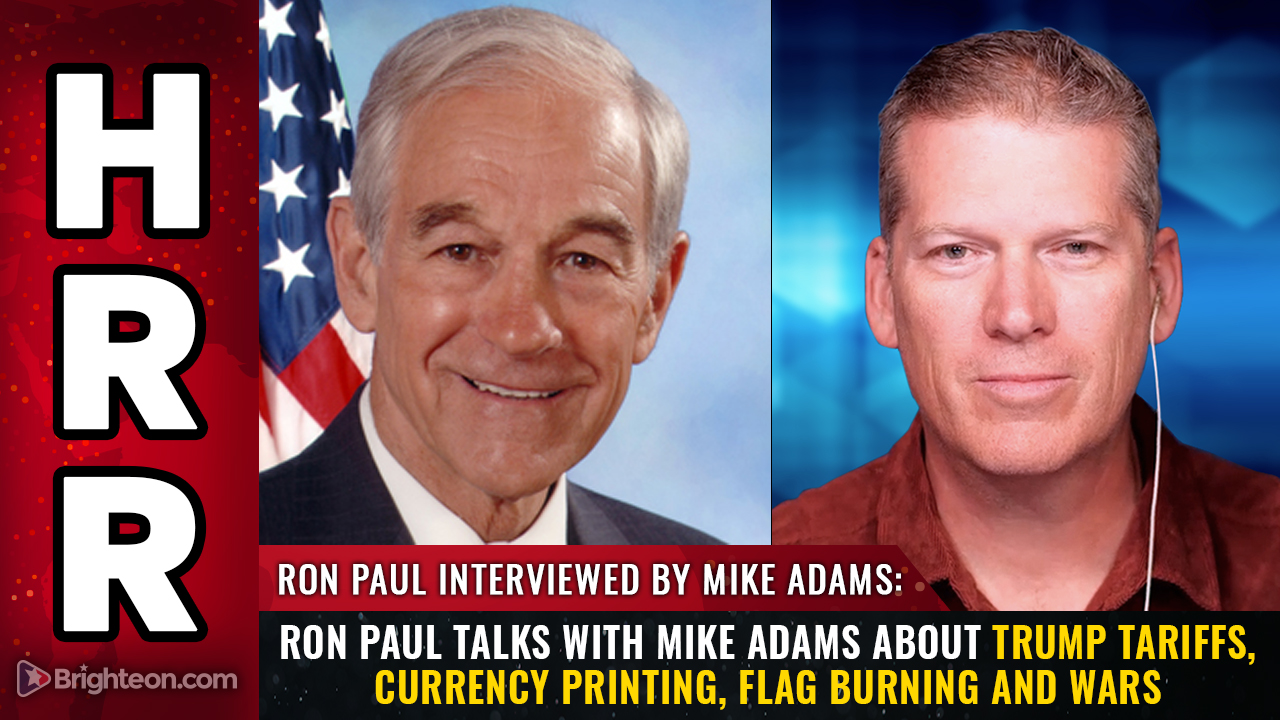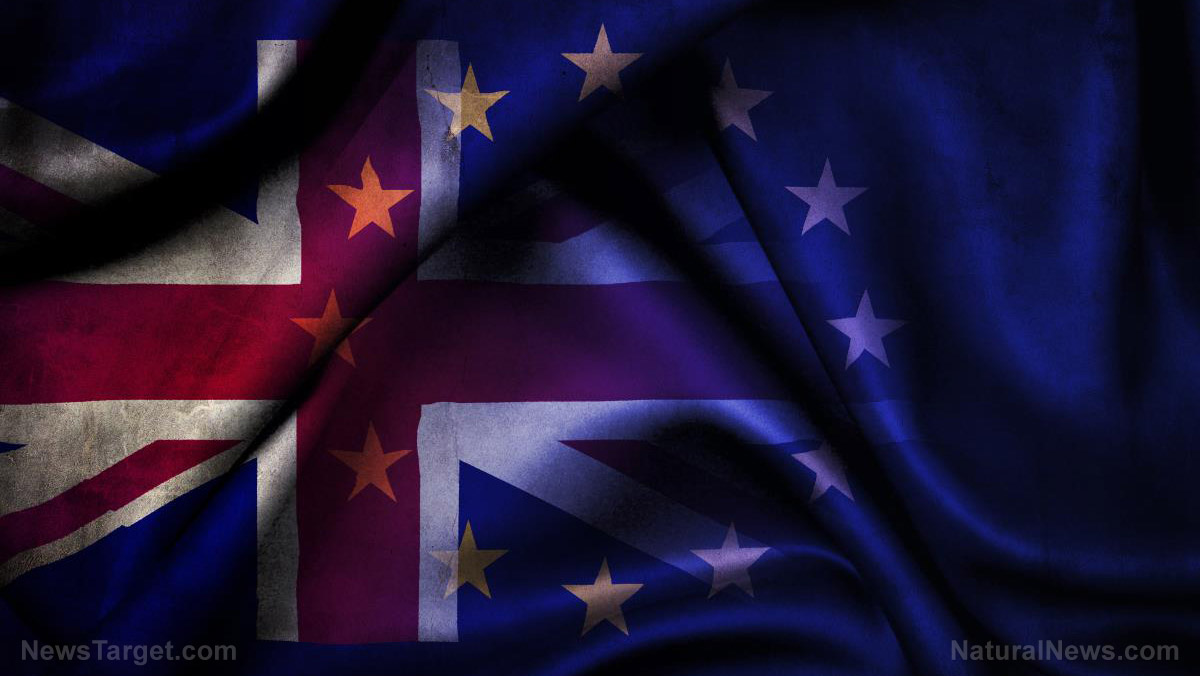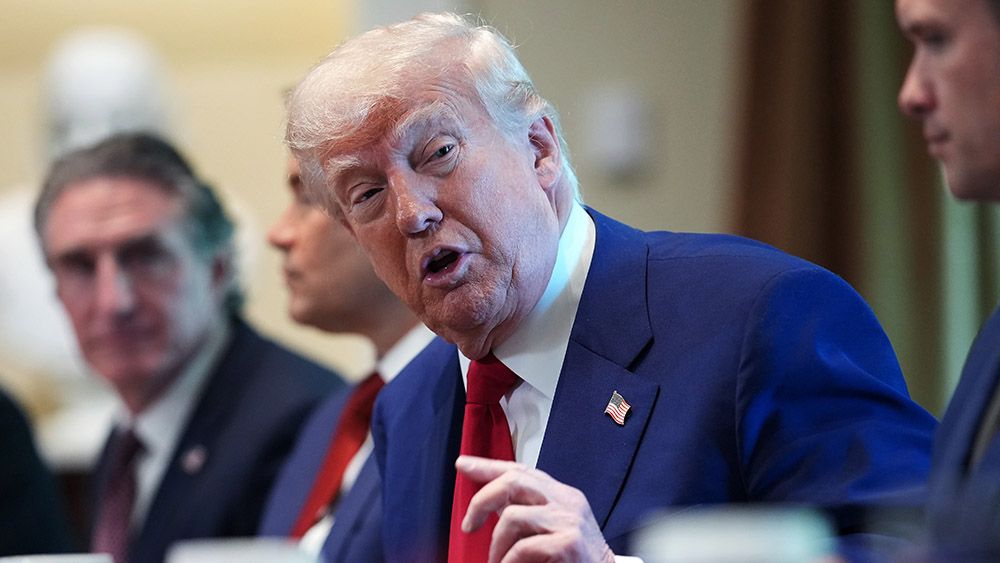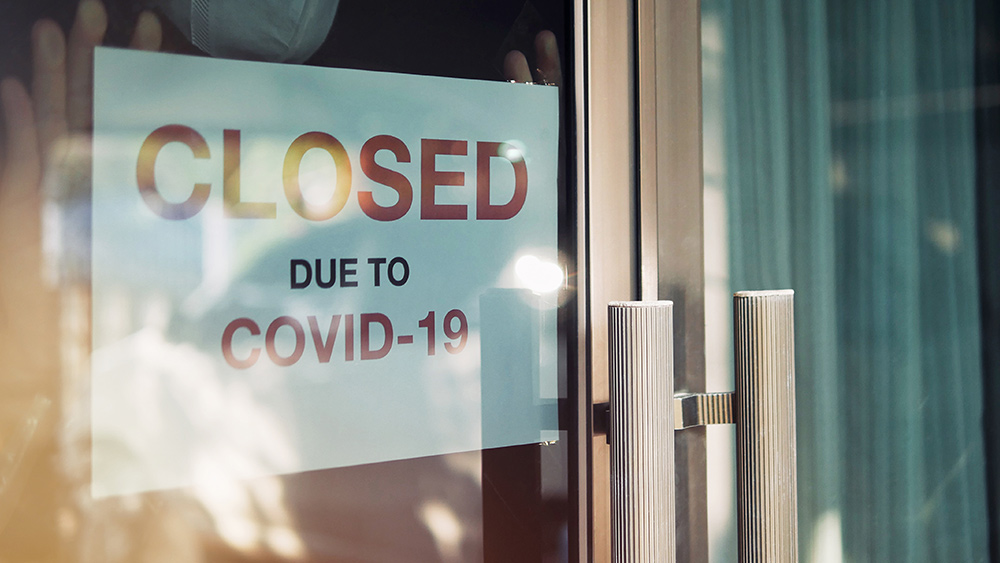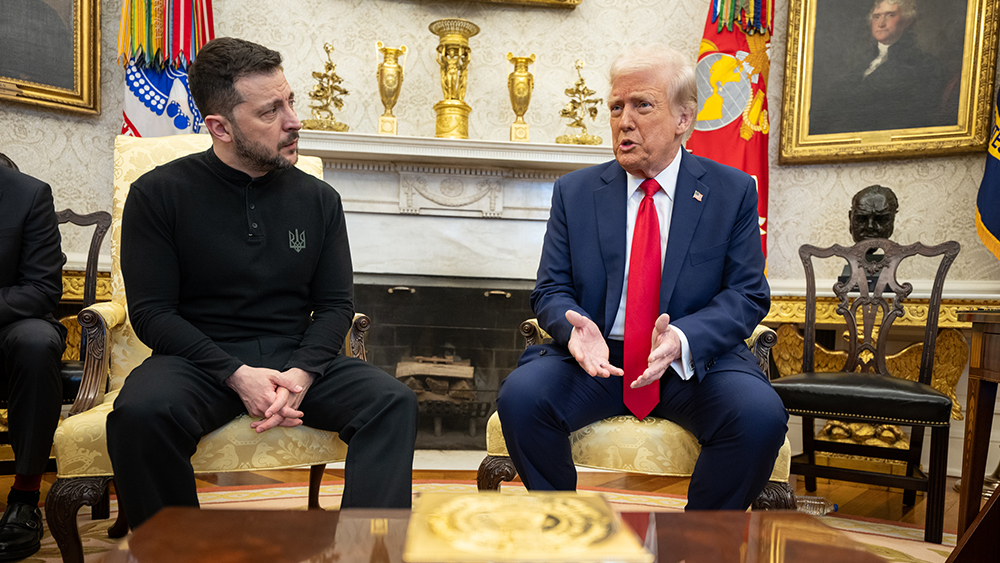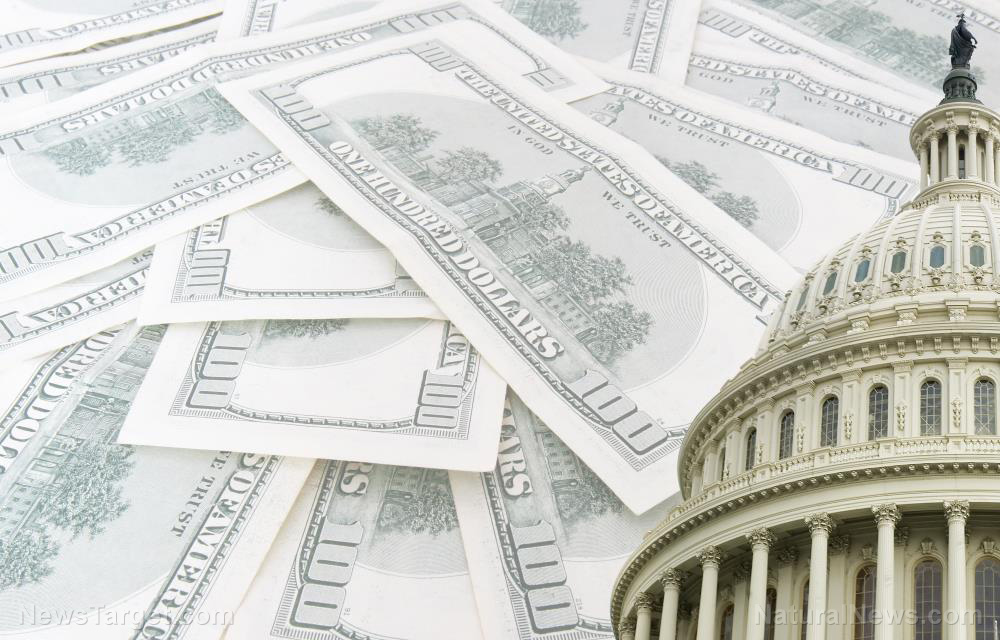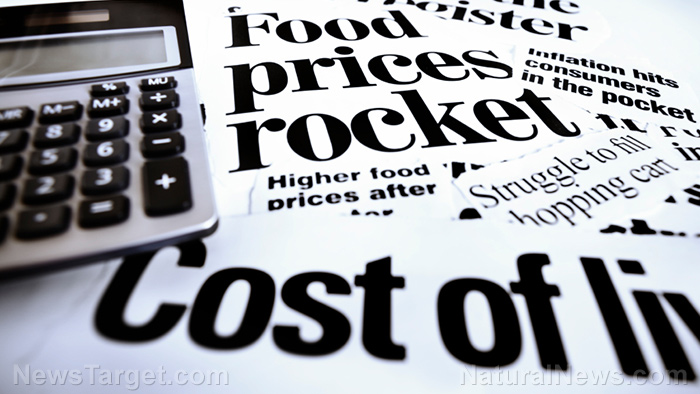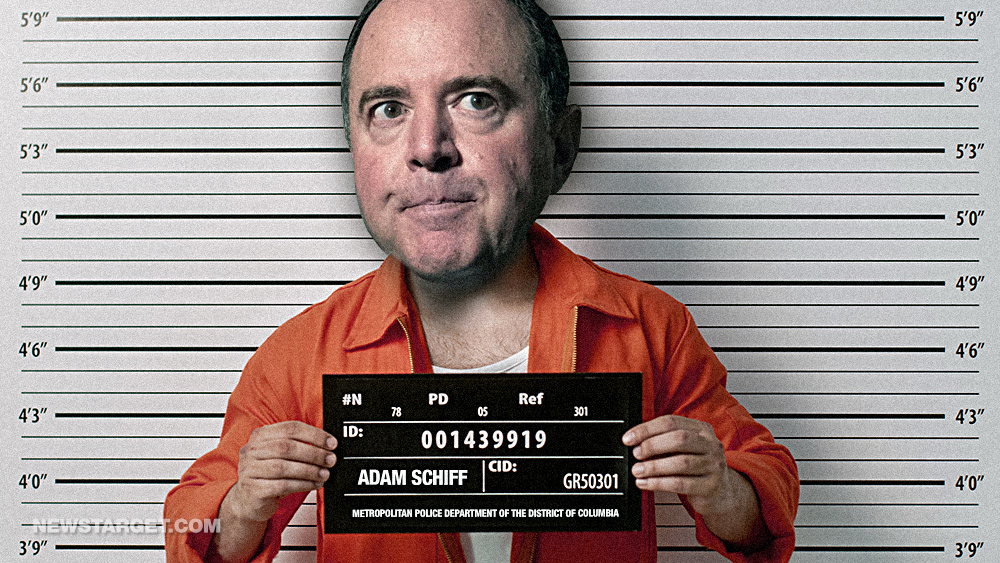CBO estimates Trump tariffs could cut U.S. deficit by $4 trillion over a decade
08/26/2025 / By Willow Tohi
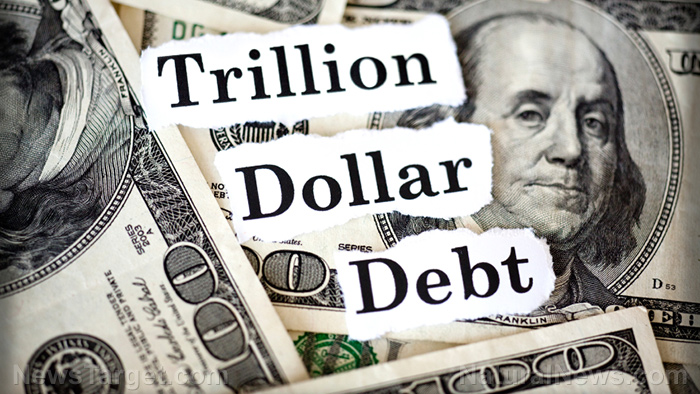
- The Congressional Budget Office (CBO) estimates that President Donald Trump?s tariff policy could reduce the U.S. federal deficit by $4 trillion over the next decade.
- The tariffs would shrink primary deficits by $3.3 trillion and cut federal interest payments by $700 billion.
- Tariffs on U.S. imports averaged 16.7 percent in August, up from 15.1 percent in June, according to Oxford Economics.
- The revenue from tariffs could help offset the deficit increases from the Republicans’ tax and spending bill, projected to widen deficits by $3.4 trillion over the next decade.
- The CBO cautions that ongoing negotiations and legal challenges could affect the sustainability of current tariff levels.
On August 24, 2025, the Congressional Budget Office (CBO) released a significant analysis projecting that President Donald Trump’s expanded tariff policy could reduce the U.S. federal deficit by an unprecedented $4 trillion over the next decade. The CBO report, titled “61389 Tariff Effects,” evaluates the economic impact of tariffs imposed between January and May 2025 and forecasts their financial implications through 2035. The projections, based on rigorous economic modeling, suggest that the revenue generated from import duties will significantly outweigh any modest economic slowdowns or temporary increases in inflation. This analysis comes at a critical time as the federal government faces a funding deadline at the end of September and continues to grapple with a burgeoning national debt.
The CBO’s detailed projections
The CBO’s analysis reveals that if the current levels of tariffs remain in place, they could shrink primary deficits by $3.3 trillion and reduce federal interest payments by $700 billion over the next decade. These projections represent a substantial revision from the agency’s June estimates, which projected a $2.5 trillion reduction in primary deficits and a $500 billion reduction in interest outlays. The increase in projected revenue is attributed to recent hikes in tariff rates and broader coverage across key imports.
Key tariff rates:
- August 2025: Tariffs on U.S. imports averaged 16.7 percent, up from 15.1 percent in June 2025.
- Revenue impact: U.S. Customs and Border Protection has already assessed more than $26 billion in duties this fiscal year, a significant increase from the hundreds of millions collected the previous year.
Economic context and policy implications
The U.S. federal debt currently stands at $37.18 trillion, a figure that has continued to grow under both Republican and Democratic administrations as Congress authorizes spending beyond revenue intake. The CBO’s findings suggest that tariff income could help offset part of the structural deficit while political and economic negotiations determine the sustainability of current rate levels.
Impact on deficit:
- The additional tariff revenue could help offset deficit growth tied to the Republicans’ tax and spending legislation, referred to by Trump as the “Big Beautiful Bill.” This package is projected to widen deficits by $3.4 trillion over the next decade.
- Broader Economic Impact: While the revenue from tariffs is significant, critics caution about the broader economic impacts, including higher consumer prices and trade tensions. The tariffs essentially function as a sales tax on American consumers, which means the deficit reduction is coming from increased costs borne by U.S. households.
Legal and trade challenges
The CBO report acknowledges that the current tariff rates may not hold as trading partners pursue negotiations and legal challenges. The legal environment surrounding international trade is complex, and decisions by courts and international bodies could significantly alter the fiscal outlook. The Committee for a Responsible Federal Budget (CRFB) has also warned that the nation’s finances have “deteriorated” since January, and the tariffs may not be enough to cover the costs of the One Big Beautiful Bill Act.
Potential scenarios:
- Permanent tariffs: If tariffs remain in place, the CRFB estimates a $2.8 trillion reduction in the deficit.
- Legal rulings: If the majority of tariffs are ruled illegal and thrown out by an appeals court, the fiscal impact could be significantly different.
A path forward in deficit reduction
The CBO’s analysis of President Trump’s 2025 tariff policy provides a compelling case for the fiscal benefits of increased tariffs. While the projected $4 trillion reduction in the federal deficit is substantial, it is important to consider the broader economic and legal landscape. As the government approaches a funding deadline at the end of September, the findings from the CBO will play a crucial role in shaping fiscal policy and budget negotiations. The path forward will likely involve a delicate balance between deficit reduction and managing the economic impacts on American consumers and businesses.
Sources for this article include:
Submit a correction >>
Tagged Under:
big government, bubble, CBO, debt bomb, debt collapse, deficit, Donald Trump, economy, government debt, money supply, pensions, progress, risk, supply chain, tariffs, trade wars, White House
This article may contain statements that reflect the opinion of the author
RECENT NEWS & ARTICLES
COPYRIGHT © 2020 Debtbomb.news
All content posted on this site is protected under Free Speech. Debtbomb.news is not responsible for content written by contributing authors. The information on this site is provided for educational and entertainment purposes only. It is not intended as a substitute for professional advice of any kind. Debtbomb.news assumes no responsibility for the use or misuse of this material. All trademarks, registered trademarks and service marks mentioned on this site are the property of their respective owners.

